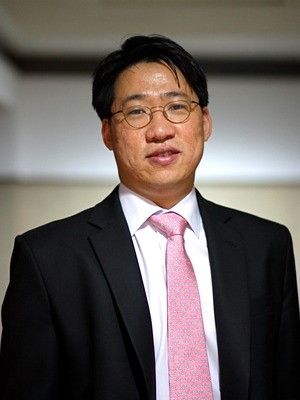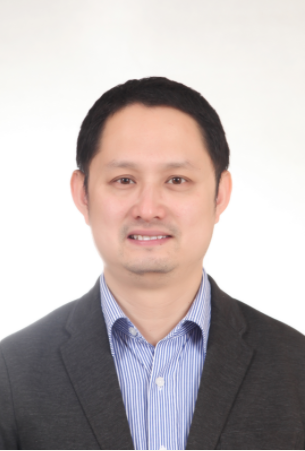E-Commerce, Mobile Payment and Internet Finance
GTI
Session 285
The workshop mainly focuses on five areas related to e-commerce, mobile payment and internet finance.
(1) E-commerce in the time of COVID-19
The COVID-19 crisis has led people in many countries to significantly limit physical interactions, which has put a large share of traditional brick-and-mortar retail virtually on hold, at least temporarily. However, the lockdown policies actually boosted the development of e-commerce. In the United States, the share of e-commerce in total retail spiked to 16.1% between the first and second quarter of 2020. We’d like the speakers to talk about the impact of COVID-19 on the e-commerce and related policy support required for this new trend.
(2) Mobile payment around the world
With the fast development of e-commerce, mobile payment technology has also developed at an amazing rate, with the percentage of consumers using their mobile phones and tablets to purchase online growing. For example, China is a world leader in mobile commerce, and almost three out of every four of China's e-commerce transactions are carried out on a mobile device, generating $873.3 billion in sales in 2019. We’d like the speakers to talk about mobile payment in China and around the world.
(3) Internet finance and Sustainable Development Goals (SDGs)
Internet finance could promote sustainable development. For example, it could create a great number of new jobs, and provide loans for both individuals and enterprises in a convenient and efficient way. By doing so, it could contribute to many SDGs, such as SDG 1 (no poverty), SDG 3 (good health and well-being), SDG 8 (decent work and economic growth), and SDG 9 (industry, innovation and infrastructure). Speakers are invited to talk about how internet finance could contribute to the achievement of SDGs around the world.
(4) Cybersecurity and data privacy
However, there are some problems of e-commerce, mobile payment and internet finance. Among them, cybersecurity and data privacy are the main concerns of the costumers. Transaction security, customers' information security, surveillance, etc. are among topics we’d like to explore in this part. Speakers are invited to talk about cybersecurity and data privacy of e-commerce, mobile payment and internet finance, based on their experience and expertise.
(5) Regulations of internet finance
As a new form of finance, internet finance requires new regulations and laws. Under current laws and regulations, it may be difficult to regulate internet finance appropriately (either too tightly or too loosely). For example, Jack Ma, the founder of Alibaba Group and Ant Group, criticized old regulation systems of finance and required the reform of regulation systems in China last year. Speakers are invited to discuss about the problems of current regulation systems regarding internet finance, and propose solutions.


Robert Koopman is Chief Economist and Director of Economic Research and Statistics Division at the World Trade Organization.
In this post Bob provides the Secretariat and Member Countries with analysis and information that promotes a deeper understanding of trade and trade policy's role in economic growth and development. Prior to this, he served as the
Director of Operations and Chief Operating Officer for the United States International Trade Commission.
Bob oversaw the Commission’s trade policy research and negotiation assistance to the President, the U.S. Trade Representative, and Congress; antidumping, countervailing duty, and safeguard; investigations; intellectual property investigations; maintenance and analysis of the Harmonized Tariff System, as well as the agency’s strategic planning and performance measurement initiatives.
He also previously served as Chief Economist at the USITC, and various leadership positions at the Economic Research Service of USDA. He is also currently a visiting Professor at the Graduate Institute in Geneva.

Jeongmin Seong is a Partner at the McKinsey Global Institute, McKinsey & Company’s business and economics research arm. He leads MGI research teams in China, working on global as well as emerging market-focused themes.
Jeongmin’s recent research has focused on globalization, technology, innovation and economic development. He has co-authored several MGI reports and discussion papers, including Reskilling China: Turning the world’s largest workforce into lifelong learners; China and the world: Inside a changing economic relationship; Future of Asia: Asian flows and networks are defining the next phase of globalization; Future of Asia: Decoding the value and performance of Corporate Asia; Future of Asia: How Asia can boost growth through technological leapfrogging; Globalization in transition: The future of global trade and value chains; Outperformers: High-growth emerging economies and the companies that propel them; China’s choice: Capturing the $5 trillion productivity opportunity; China’s digital economy: Powering the economy to global competitiveness; The China effect on global innovation; China’s digital transformation; China’s role in the next phase of globalization; Artificial Intelligence: Implications for China; Notes from the AI frontier: Modeling the impact of AI on the world economy; and an ongoing series on the Future of Asia.
Prior to joining MGI, Jeongmin worked with companies around the world focusing on consumer facing industries including consumer electronics, retail, and automotive. Jeongmin also led McKinsey’s emerging market growth service line.
Prior to joining McKinsey Shanghai office, Jeongmin worked as a product marketing manager at Dell.
Jeongmin is a graduate of Harvard Business School where he received his MBA degree.

Ivo Jeník has 12 years of experience in finance, primarily in retail financial services regulation. He has led CGAP’s work on regulatory innovation (crowdfunding, regulatory sandboxes), capacity building for policy makers (regulation and supervision of digital financial services) and emerging business models in banking across continents.
Before joining CGAP, Ivo worked in the Responsible Financial Access team at the World Bank, where he specialized in financial consumer protection and alternative dispute resolution. His professional experience spans across both the private and public sector, including serving as a compliance officer at an investment company and as Head of the Collective Investment Department at the Czech Financial Ombudsman.
Ivo has a Master’s degree in Law from Columbia Law School in New York and a Master’s degree in Law from Charles University in Prague.
.png)
Chen Zhang now serves as the associate professor of School of Economics at Renmin University of China, as well as the associate dean of Confucius Institute at University of Geneva. The main areas of his research focus on political economy theory and China's economic policy, and his academic papers have been published on peer review journals such as Social Sciences in China, Review of Political Economy etc. His research and policy recommendations on the reform of China's state-owned enterprises have had a great impact on the policy formulation.

Nicholas Frank is a lecturer in the School of Politics and International Relations and a PhD candidate in the School of Regulation and Global Governance at the Australian National University (ANU). Nicholas specializes in international political economy and international economic governance. His research interests include the political economy of international trade, international development, and geo-economics.
Prior to undertaking his position at the ANU, Nicholas worked at the World Trade Organization (WTO) and the International Centre for Trade and Sustainable Development (ICTSD) on topics including WTO accessions, service sector regulation and development, global value chain integration and upgrading, and e-commerce and disruptive technologies. He currently provides consulting advice and research services to the International Trade Centre (ITC) on a variety of trade and development issues.
Nicholas holds a Master of Science (International Political Economy) from the London School of Economics, and an Honours degree (International Political Economy) and Bachelor of Commerce (Economics and Politics) from the University of Cape Town.
-
 C1. The role of governments and all stakeholders in the promotion of ICTs for development
C1. The role of governments and all stakeholders in the promotion of ICTs for development
-
 C7. ICT applications: benefits in all aspects of life — E-business
C7. ICT applications: benefits in all aspects of life — E-business
-
 C7. ICT applications: benefits in all aspects of life — E-science
C7. ICT applications: benefits in all aspects of life — E-science
-
 C10. Ethical dimensions of the Information Society
C10. Ethical dimensions of the Information Society
-
 Goal 1: End poverty in all its forms everywhere
Goal 1: End poverty in all its forms everywhere
-
 Goal 8: Promote inclusive and sustainable economic growth, employment and decent work for all
Goal 8: Promote inclusive and sustainable economic growth, employment and decent work for all
-
 Goal 9: Build resilient infrastructure, promote sustainable industrialization and foster innovation
Goal 9: Build resilient infrastructure, promote sustainable industrialization and foster innovation
Both mobile payment and internet finance promotes sustainable development. For example, internet finance creates a great number of new jobs, and provide loans for both individuals and enterprises in a convenient and efficient way. By doing so, internet finance could contribute to many SDGs, such as SDG 1 (no poverty), SDG 3 (good health and well-being), SDG 8 (decent work and economic growth), and SDG 9 (industry, innovation and infrastructure).

.png)
.png)
.png)
.png)
.png)
.png)
.png)
.png)
.png)